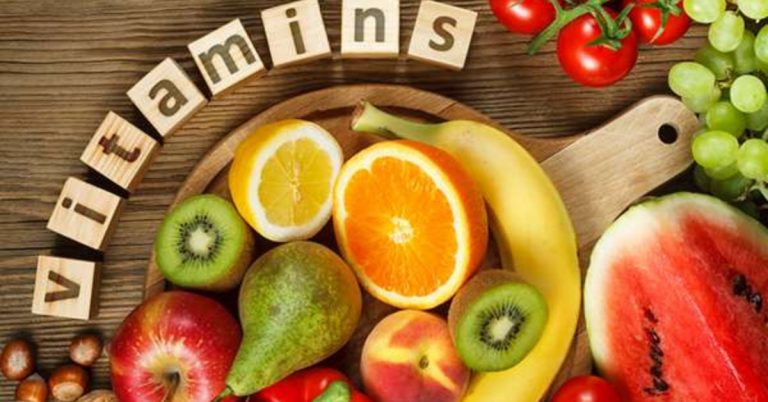Every day, our body produce skin, muscle, and bone, red blood cell that carries nutrients and oxygen, it sends signals etc. but to do all this our body require some raw materials. These includes vitamins, minerals and dietary components that our body needs but cannot manufacture on its own in sufficient amounts. Vitamins and minerals are essential nutrients because they perform hundreds of roles in the body. They help boost our bone strength, heal wound and reenergize your immune system. Vitamins and minerals are often called micronutrients because our body needs only tiny amounts of them, but they differ in basic way that vitamins are organic and can be broken down by heat, air or acid. Minerals are inorganic and hold on to their chemical structure. Minerals present in soil, water find their way into our body through plants, animal and fluid we consume. But its tougher to shuttle vitamins from food and other sources into your body because cooking, storage can inactivate these fragile compounds.
Vitamins are of many types which are known mainly be their initials vit. A,B,C,D,E,K. body needs and stores, fairly large amount of the major minerals. Majors minerals are sodium, potassium, calcium, magnesium, fluoride, chloride, sulfur.
In the 19th century, physiologist studying that fat, starch and sugar provide usable energy during oxidation in the body. Though it was felt that mixed diet normally supplied adequate quantities of all these without any need for special precautions. The historic importance of vitamin C deficiency relates to occurrence on long sea-going voyages, when the ship food supplies had no good source of the vitamin. Deficiency results in scurvy, characterized by weakness, pain in the joints, loose teeth. However, ill men would recover soon after reaching land where they could be given fresh fruit or salad greens.
Vitamin deficiency is the condition of a long term lack of a vitamin caused by not enough vitamin intake.
| Vitamins | Deficiency |
| A | Night blindness, weakness immune system |
| B1 | beriberi, weakness, pain in limbs |
| B2 | Anemia, painful red tongue, cracked lips |
| B3 | Pellagra, diarrhea, dermatitis |
| B7 | affect hair growth and skin health |
| B9 | neural tube defect in infants |
| B12 | Anemia, degradation of spinal cord |
| C | Scurvy, weakness, weight loss |
| D | Rickets |
| E | Poor conduction of nerve impulse |
| K | Bleeding gums, nosebleed |
A mineral deficiency occurs when our body doesn’t obtain or absorb the required amount of a mineral.
Calcium deficiency: for story bones and teeth. Decrease Ca++ over a long term leads to decreased bone mineral density called osteopenia.
Iron deficiency: iron is the important part of hemoglobin, a protein that carries oxygen to your tissue. Deficiency causes Anemia.
Magnesium deficiency: body need Mg to control hundreds of chemical reactions. Deficiency cause weakness, loss of appetite.
Potassium deficiency: function as an electrolyte, required for muscle contraction. Deficiency causes excessive fluid loss.
Sometimes we can focus on our carrers so much that we loose track of our health. However, research shows that workers who eat healthy meals and exercise regularly have better job performance and lower absenteeism than their less healthy colleagues. A health enhancement organization (HERO) study found that professional who eat healthy all day long are 25% more likely to have higher job performance.
Of course one need not go to extremes as did well known person like Howard huges. He was an ardent germaphobe (person with an extreme fear of germs and an obsession with cleanliness. When it is came to eating, he made sure that any spoon given to him was first wrapped in tissue paper sealed with Cellophane.
The concept of fasts isn’t too unfamiliar for us: though, for most of us it carries a religious connotation. Fasting traditions are typically handed down generation, with all the family members. Be it a weekly ritual or an annual event i.e festivals. What’s interesting is that these age-old practices have a lot of science behind them. Fasting has been scientifically proven to prevent and cure many ailments its an old word version of the modern day ‘cleanse’ OR ‘detox’. Fasts can last a day, span a week or stretch across an entire month. Fast having varying levels of restriction and allowances. Some fast allow consumption of fruits. The more complex fast are done by completely abstaining from food or water. Fasting helps our body to detoxify and rejuvenate, but only if its done right. With age our body slowdown and loses some of the vitality, become more vulnerable to even minor disturbances in diet and routine.
In part – 3, we will take up the arguably the most important aspects of how one can keep oneself healthy on a long term basis i.e. the need for a sound sleep everyday.

